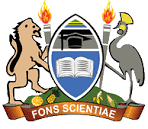Bachelor of Science in Geophysical and Mineralogy
Introduction
Geophysics is the application of physics principles to the study of the Earth. It is an engineering course that images the Earth,s interior for economic resource identification and location. Geophysics also provides the nature of the Earth,s subsurface before construction of any engineering structure commences (such as buildings, roads, railway etc). Mineralogy is the science of minerals.
This course entails the study of the geophysical techniques such as potential fields (gravity and magnetics), diffusive fields (electrical, heat flow, electromagnetic,s), and wave propagation (seismic waves, radar waves, and GIS). These methods are widely applied in exploration and production in petroleum industry, geothermal energy, underground water, geotechnical engineering, oil and gas industry. Furthermore, applied in exploration, production and processing of minerals such as (iron, gold, diatomite etc) which are important in construction and medical fields.
B.Sc. Geophysics and Mineralogy is designed to meet challenges and demands affecting Kenya,s labor market as dictated by both local and international demands. The program is also designed to combat shortage of professionals trained in Geophysics and Mineralogy in Kenya, Africa region and the world at large. The course is designed to provide interdisciplinary approaches for training Geophysics and Mineralogy engineers and scientists who need to work competitively in all fields and areas in this sector. The course provides graduates with real world situations full of various techniques of analysis, knowledge, skills, attitudes, and experiences that prepare them to meet challenges in the fields of Geophysics and Mineralogy.
Geophysics and mineralogy equips scholars with substantial understanding of a wide range of sciences in demonstrating technical competence in planning, conducting and reporting on investigations, collect, record and analyze data using appropriate analytical techniques in the field and laboratory. Geophysicist apply knowledge and understanding to address issues of mineral prospecting, quantification and processing as well as issues relating to the surrounding communities as far as minerals are concerned. It also develops advanced knowledge on geophysical data acquisition, processing and interpretation.
Career paths:
- Geophysicist
- Mineralogist
- Geoscientist
Potential area of employment:
Here are some potential areas of employment for graduates in Geophysics and Mineralogy fields:
- Oil and Gas Industry: Geophysics graduates can work in exploration and production companies, using seismic surveys and other geophysical methods to locate and assess oil and gas reserves underground.
- Mining Industry: Both geophysics and mineralogy graduates can work in the mining sector, exploring and evaluating mineral deposits, analyzing their composition, and developing strategies for efficient extraction.
- Environmental Consulting: Geophysics graduates can contribute to environmental assessments and site investigations, using their knowledge to study soil and water contamination, groundwater flow, and other subsurface issues.
- Geotechnical Engineering: Graduates can work in this field, assessing the stability of soil and rock for construction projects, designing foundations, and ensuring the safety of infrastructure.
- Natural Resource Management: Geophysics and mineralogy graduates can play a role in managing and conserving natural resources, assessing their availability, and monitoring their sustainable extraction.
- Geothermal Energy Industry: Geophysics graduates can work in the exploration and development of geothermal energy resources, using their knowledge to locate suitable areas for geothermal power generation.
- Environmental Monitoring: Both geophysics and mineralogy graduates can contribute to monitoring natural disasters such as earthquakes, landslides, and volcanic eruptions, helping to mitigate their impacts.
- Research and Academia: Graduates can pursue research and teaching positions in universities and research institutions, advancing the understanding of Earth's processes, materials, and resources.
- Remote Sensing and GIS: Geophysics graduates can work with geographic information systems (GIS) and remote sensing technologies to analyze and map geospatial data for various applications, including urban planning, agriculture, and natural resource management.
- Hydrology and Water Resource Management: Geophysics graduates can contribute to the study of groundwater systems, water availability, and water quality assessment, which are critical for sustainable water resource management.
- Government Agencies: Graduates can work for government agencies responsible for land and resource management, environmental protection, and geological surveying.
- Consulting Firms: Graduates can find employment in consulting firms that offer services in geophysics, mineralogy, and environmental assessments to a wide range of industries.
- Energy Companies: Geophysics graduates may work in renewable energy sectors such as wind and solar energy, where subsurface studies can help identify suitable locations for installations.
Entry requirement
To be eligible for admission for this course, a candidate must satisfy the following requirements:
- All candidates admitted to the degree programme of B.Sc. Geophysics and Mineralogy must satisfy the minimum university entry requirements stipulated in the common university entrance requirement regulations of C+ (plus) and above.
- Candidates must have passed the Kenya Certificate of Secondary Education (KCSE) examination with minimum grade indicated in each of the following subjects:
- Chemistry/Physics C+ (or B in Physical Sciences)
- Mathematics C +
- Biology or Geography C+ (or B in Biological Sciences)
Those with diploma qualifications in the following areas can also be considered: Geophysics, Mineralogy, Analytical Chemistry, Biological Sciences, and any other qualification that the Senate may deem equivalent to the above.
 Kisii University |
Kisii University |